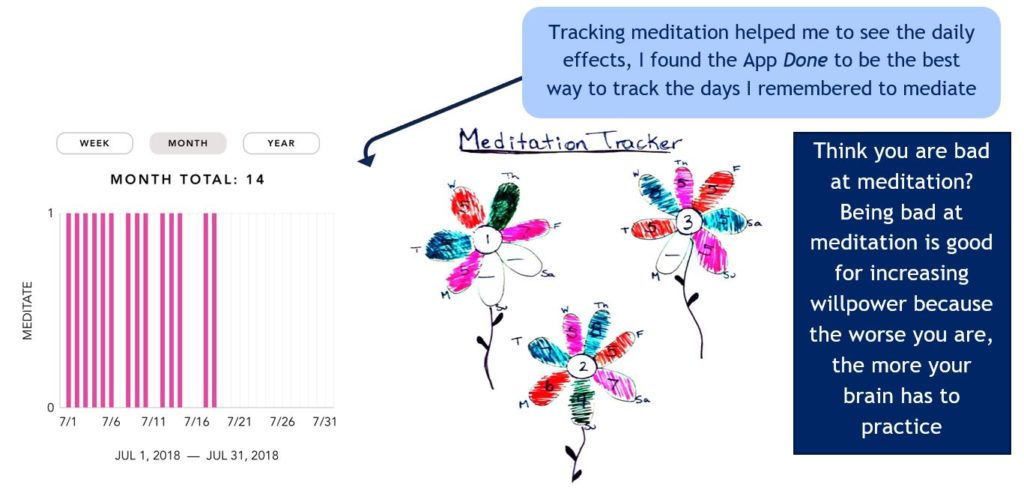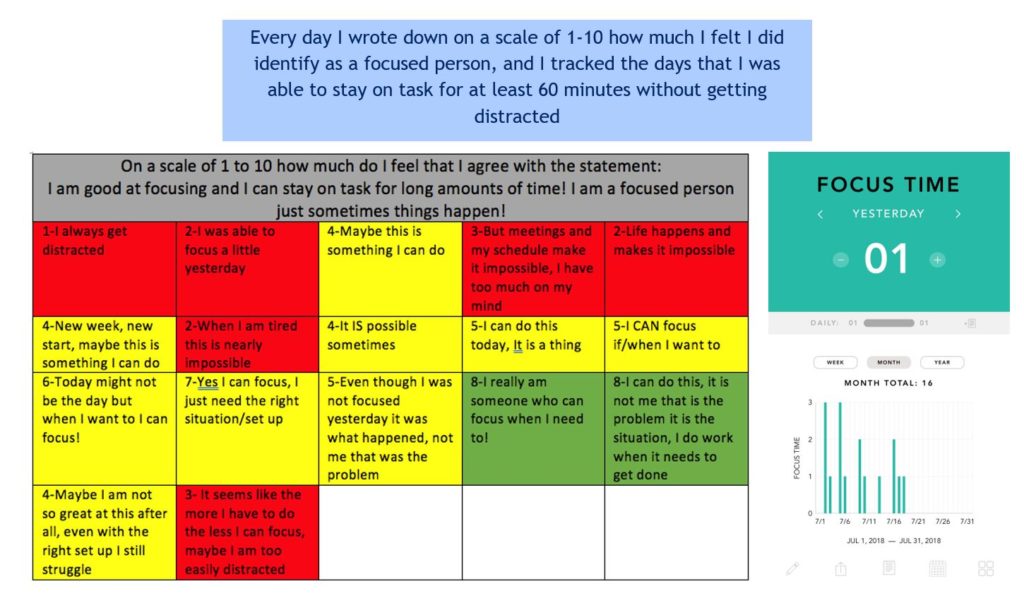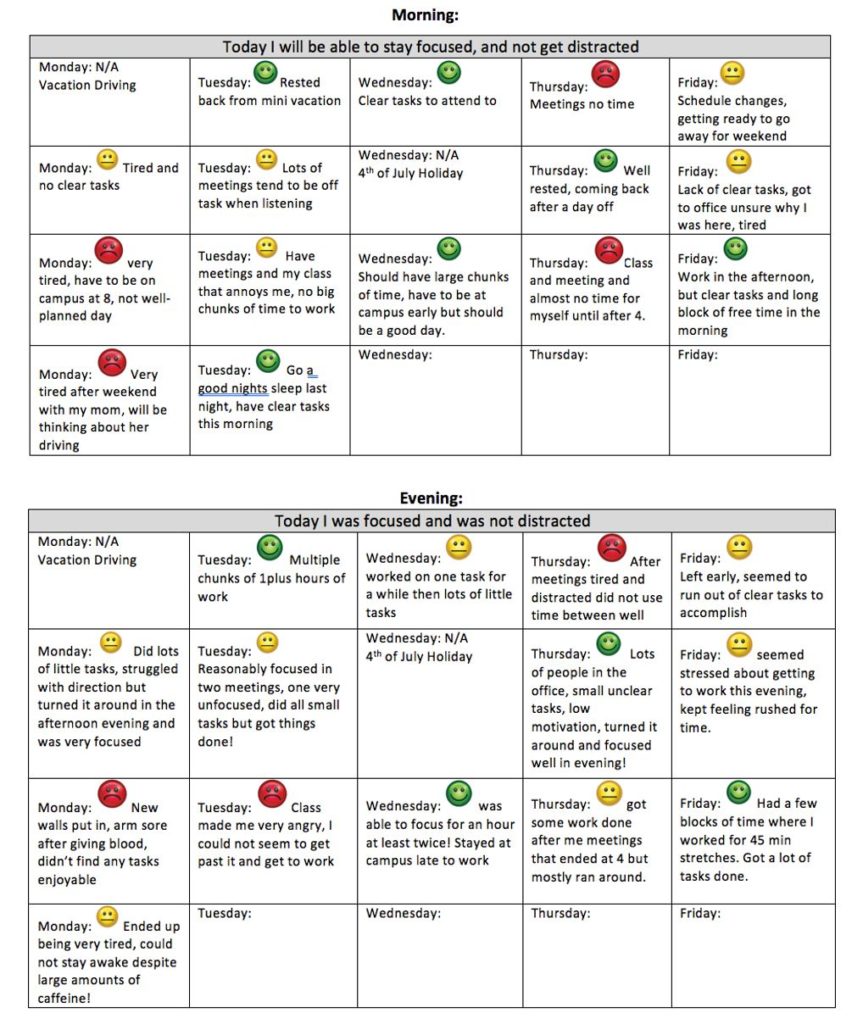How I used The Willpower Instinct to increase my focus and productivity.
This semester I worked to increase my ability to focus on tasks for extended amounts of time. In the past, I have always felt like someone who gives in easily to distractions and does not stay on task well. As a student, it is critical to be able to focus despite the many distractions of email, cell phones, mental and emotional feelings and more. I felt if I could increase my focus, I would find that I was more productive and able to get more tasks done in a week. As a step towards my improvement, I read The Willpower Instinct by Kelly McGonigal. The many insights in the book supported my ability to focus. While I do not think I have mastered the art of concentrating just yet I do believe I have improved and I am eager to continue increasing my ability to focus.
Steps to Focus, Focus, Focus
Tracking Improvements
1. Training the willpower muscle—

It instinctively makes sense that if we practice something, we get better. As McGonigal says, “Ask your brain to worry, and it gets better at worrying. Ask your brain to concentrate, it and it gets better at concentrating.” Thus, ask your brain to focus on one thing, it gets better at concentrating on one thing. While there are many ways to train willpower from leaving out tempting distraction to turn down, to making it impossible to ignore a task, one of the easiest ways to exercise the willpower muscle is meditation. Meditation requires the brain to practice focusing, and more importantly, coming back to a task after it has gotten distracted. I found daily (or almost daily mediation) to be extremely helpful in calming me down, helping me remember what I needed to do, and increasing my ability to stay focused. I have now set a new goal to meditate for ten minutes at least five times a week every week!
2. See yourself positively—

Our identity is linked to our actions. When we give ourselves an identity, we often look for more ways to “live our values, and achieve our goals.” (McGonigal, p.104). Thus, to take more action towards a goal, the identity of the person and the goal need to be aligned. Because of this I decided to try to see myself as someone who was good at focusing. It was who I really, thus every time I stayed on task I was acting in line with my new identity, and when I wasn’t on task I was going against who I really was. While I won’t say that I have fully assumed my new identity it has been good to try to see myself as a focused person. Now when I am not focused I cannot just say “well that’s who I am.” It also makes it easier to stop and think, about what caused me to fail, if it isn’t inherently a part of me, what in the environment or routine kept me from focusing today? And in identifying that, I can get even close to having focus friendly surroundings.
3. Pay attention to success and failure—

One powerful way to overcome willpower challenges is to be aware of what happens when you succeed and what causes you to fail. I decided to examine every day what I thought would cause me to succeed and fail and then record what caused my actual outcomes for the day. I found that it was often a lack of clear tasks that lead me to not stay on task. I also noticed that my emotional state (excitement for weekend plans, frustration, etc.) was another significant factor in my ability to have a good focus day. Now I can ensure I write a clear to-do list in the morning, monitor my emotions, and plan accordingly.

